How to get more people listening to your podcast
Bringing more listeners to your podcast is the mountain every podcaster has to climb.
And unfortunately, there’s no secret shortcut to the summit (so please be wary of anyone who tells you there is).
There are plenty of things you can do to set your podcast up for success BUT even if you’re doing all of them well, it’s still no guarantee listeners will flood into your show.
So what can you do to increase your chances of getting more ears on your podcast?
Want help starting your podcast? Download my FREE ‘How To Start A Podcast’ guide.
Pay attention to the quality of your show
Podcasting has levelled up.
It’s no longer the domain of bootstrapping novices giving the middle finger to mainstream media.
Podcasting is mainstream media.
That doesn’t mean you have to record your show in a professional studio but it does mean you need to put time and effort into thinking about how your show sounds.
If your audio is echoey or hard to listen to, that could be the reason someone turns off.
And when you have to work SO HARD to get people to discover your podcast you don’t want to give them ANY reason to leave once you’ve got them there.
You don’t need to sound like the BBC, but you do need to sound clean, clear and professional.
And the same goes for your content.
If your episodes ramble, lack structure, or feel like you haven’t thought about the listener experience at all, you’re not going to hold people’s attention.
You don’t have to sound perfect, but you can’t ignore audio quality if you want a successful show.
Release episodes regularly (ideally every week)
Consistency is one of the most important, and often overlooked, factors in podcast growth.
Releasing episodes consistently (ideally on the same day and time each week) builds trust with your audience and gives them a reason to make room for your show in their lives.
When they know what to expect and when to expect it, they’ll be more likely to become regular listeners.
And regular listeners are the ones who’ll tell their friends about your show.
Consistency is also how podcasting platforms know you’re taking your show seriously.
I know it’s not exciting advice but it’s the kind of advice that makes a difference.
Aim for sustainable growth
Podcast audiences grow incrementally.
Most people launch, hit a base level of listeners, then see slow growth over time (if they’re doing things right).
You might get lucky and score a big audience bump after a prominent app feature, promotion on another podcast or some killer PR.
But more often, you’ll be chipping away at audience growth week by week.
And that’s okay.
Instead of chasing giant download numbers, pay attention to the audience trajectory of your show.
Is it growing? Are people sticking around? Are they consuming the majority of your episodes? Are they recommending your podcast to others?
Those are the metrics that matter and the ones you should focus on.
Set realistic expectations for your podcast
When it comes to measuring how well your show is doing, you want to work out the right success metrics for you.
Comparing yourself to other podcasters is a recipe for disappointment, especially if they’ve been consistently releasing episodes for years.
You also shouldn’t underestimate how much of a big deal it is to have ANYONE listening regularly to your podcast.
If five people tune in each week? That’s five people you’re connecting with through content you’ve created from scratch.
That’s not failure, that’s a win.
Be creative with how you promote your podcast
No one will know about your show unless you tell them about it.
And telling them once definitely isn’t enough.
It might take you posting content 20 times before someone sees it, or before they finally decide to give it a try.
So sending a single tweet when your episode drops isn’t going to cut it.
You have to make it really easy and really enticing for people to listen.
Being creative with how you promote your show and coming up with different angles for each episode means you’ll increase the chances of a potential listener being interested enough to press play.
To do that you need to come up with as many different ways to share your content as possible and then share it A LOT.
Focus your energy on social platforms that actually work
You don’t need to be everywhere but you do need to know where your audience is and what’s driving actual listens.
Use trackable links where possible so you can see which posts and platforms are converting to listeners and which ones aren’t.
And remember, just because people aren’t listening straight away doesn’t mean your promotional content isn’t doing it’s job.
A lot of the grunt work of content sharing is about building awareness of you and your show and the impact of that isn’t something that can be measured by clicks.
Experiment with different platforms and give it some time before you make a decision.
But if you feel like one isn’t working, let it go so you can put your energy into something else.
Optimise your show for search
The way people discover podcasts is changing and if your show isn’t easy to find, it may as well not exist.
That’s where SEO comes in so you need to be doing everything you can to increase your podcast’s chances of turning up in search.
Things like using clear, searchable titles and descriptions in your podcast host, so people know exactly what your show or episode is about.
Or creating blog posts for each episode on your website featuring an embedded audio player.
Transcription tools and AI are SUPER helpful when building this stuff because once you’ve got a podcast episode recorded you can build your show notes, descriptions and other keyword rich copy from words that have already come out of your mouth.
Get your SEO right you’ll have people stumbling across your show who might not have opened a podcast app in their life.
Submit your show for feature inside podcast apps
A lot of people find new podcasts through the features section of podcast apps so getting featured on Apple Podcasts or Spotify is a great credibility boost and it can also bring in new listeners.
But don’t fall for people selling “hacks” to get there.
These placements are curated by real people, not algorithms.
So if you want to be featured, make sure your show looks and sounds polished and that you’re submitting it through the right channels.
Promote your show in newsletters (but don’t spam)
If you’ve got an existing email list, that can be a powerful place to promote your podcast… but only if you’re providing value.
“New episode out now” emails, on repeat, don’t cut it.
Instead, include the episode as part of a tip, story, or insight your readers would want to hear even if they didn’t click through to listen to your full episode.
Treat your emails like another opportunity to provide valuable content, not just a notification.
Build genuine relationships with your audience
Podcasting is intimate. That’s what makes it powerful.
If someone takes the time to email you, DM you, or comment on your content, respond.
These relationships turn passive listeners into loyal fans. And loyal fans are the ones who’ll share your show with others.
Engagement isn’t just about boosting algorithms, it’s about building trust.
Cross-promote on other podcasts
Appearing on other shows or doing promo swaps can be great, if your audience is aligned and both parties benefit.
But don’t expect a huge spike in downloads, especially if you’re just starting out.
The right collaboration can bring in new listeners but the wrong one can completely waste your time.
Choose carefully and focus on long-term relationships, not quick trades.
Bring on high-profile guests (but don’t rely on them)
Having someone with a big following on your show can give you access to a new audience… but it doesn’t guarantee anything.
Some guests will share the episode. Some won’t.
Some audiences will follow them over. Some won’t.
Focus on creating a great experience for your guest and giving them assets that make it easy to share but don’t rely on them for audience growth.
You’ve got no idea how much of an impact a guest will have until you’ve pressed publish on your episode and there’s a LOT of work that goes in before you get to that point.
If you’re waiting for the magic to happen and all you get is a couple of extra downloads you’ll be very disappointed.
Try paid ads
Paid ads can increase awareness, but they don’t always drive clicks or listens straight away.
If you’ve got the budget, test different platforms and messaging but track your results and don’t expect this path to send your podcast to the stratosphere.
Some listeners might discover your show through an ad and come back weeks later when the timing is right.
Others might see your ad multiple times and think “I’ve got to check that out” but then never get round to it.
As I said earlier, there’s real value in building awareness that can’t always be tracked in a spreadsheet but if you’re bootstrapping and trying to save on costs, leave this one for later.
Join forums and communities in your niche
Facebook groups, Reddit threads and niche forums, are all great places to find content ideas and connect with potential listeners.
But tread carefully because these spaces are built on trust.
And nothing erodes trust like screaming about your podcast the minute you walk in the virtual door.
To get value out of these environments you have to show up consistently, offer help, and only share your podcast when it’s welcomed.
Over time, being a helpful expert, support or friend in the right communities can build awareness that lasts longer than any one post.
Be patient
This is the part no one wants to hear but it’s the most important.
Podcast growth is a long game.
You might be six months in and feel like you’re getting nowhere but some of the most successful podcasters out there didn’t see traction for years.
If you care about what you’re making, if your audience is growing (even if it feels slow), and you’re doing everything you can to reach the right people, keep going.
Podcasting is NOT a sprint.
It’s a slow, satisfying, sometimes-frustrating climb.
And the only way to reach the top? Keep showing up.
🎙️ Want to start a podcast but feeling overwhelmed?
Grab my free “How To Start A Podcast” guide or get step-by-step support inside my online course, PodSchool.
Got a question about podcasting? Send it my way so I can answer it on the podcast!
Hello. Welcome to the show.
Today I'm going to answer a question from Elijah, who said, “I started my podcast about six months ago and I'm not really seeing much growth, so I'm wondering whether I should continue. My question is, what is the best way to grow your podcast audience?”
Elijah, don't worry, mate. You're not alone.
This is the mountain that every single podcaster has to climb. Even the ones that have a massive, massive online audience that start a podcast and try and bring that audience over and they don't come over.
So having a massive sort of social presence is no guarantee of success. And you definitely can build a really strong, engaged show with a lot of followers. And by “a lot of followers,” I don't even mean round numbers.
I think really the key is to think about, like, what's the maximum potential audience for your specific show. That will be different for every single show. But the only way that you're ever going to get to that maximum potential audience is, unfortunately, by delivering content consistently.
The key measure of success with podcasting is just releasing episodes, ideally every single week. If you are looking for a silver bullet in this episode, you ain't gonna find one. But I promise it's not because I don't know about the silver bullet, it's because there isn't one. And consistency is absolutely the base of it all.
I've got a bunch of things in this episode I'm going to talk about for how you can grow your audience. And ultimately, you really need to be doing a solid mix of these things.
You don't have to do every single one, because not every single one will be right for your show. But you do need to kind of take multiple goes at it from multiple different angles to try and see what sticks.
The idea of sort of sending out one social post and thinking that's enough, it's just not. Because you never know where people are going to find you, how many times they need to see your social media content before they'll actually press play, or what piece of social media content might actually convince them to listen.
So it does take a lot of time to convert people, and unfortunately, podcast growth is incremental. You know, most people will kind of have a launch, you'll get to a base level of subscribers, and then it will tick up slowly.
If you are doing all the things right from there, it's not like you have 10 downloads today and then tomorrow you'll have 700,000. You know, it really is, you have to chip away at it bit by bit.
So it's important that you deliver your content consistently, but also that you really think about what success means for you. Chasing big download numbers is going to be a recipe for disappointment for most people. It happens to some podcasters, not to everybody.
The only way it happens to podcasters is if they have an existing audience somewhere else that's come over, or if they have been consistently releasing episodes for a long period of time. A lot of those really big shows that you hear talked about a lot have been doing this for ages.
And so it's that classic case of people thinking, “Oh, they're an overnight success.” No, they're not. They've been doing this show for ages. It's just that now they're sort of gaining traction.
So I would say think about the success metrics for you and then look at trends rather than round numbers with your downloads. Find out what your base level is and then, are you growing from there? Is the trajectory that your show is going up?
Are you doing all the things that you possibly can do to promote it? And if that is the case, then this is your best-case scenario.
You know, you're doing the best job with your show, and that might mean that you have smaller downloads, but that's why it's really important to have other success metrics, like the fact that anybody's turning up. Like, that is a great success. If you have even five listeners turning up, those are five people that are checking in with your content. Turn up for them.
They like what you do, so give them what they've come for and really lean into that. But it's really important that you do a bunch of different things, and these are some of the things that you can focus on.
The first thing is to pay attention to the quality of your show. You might get away with, for a while, crappy quality. There are some shows out there that have gotten away with it.
A lot of shows that started early and had people kind of coming on board when podcasting was still a bit of a “Oh, what's all this about?” were getting big numbers from early listens. But now, it is a professional medium.
There are radio businesses and professional networks involved in this. The idea that your show can sound crappy and compete is just not true.
You know, it potentially can build audience, but ultimately, you don't want to give anybody any reason to turn your show off. And crappy audio can be a reason why people are like, “Oh, this is really difficult to listen to.” They might stick with you if they really love you, but why give them that kind of reason to turn the dial?
So it's really important that you think about your audio quality. And that doesn't take too much. You just need to do a few little tweaks at home.
But you really need to think about what you're recording at the time and how people are going to hear it so that they can have the best possible audio experience.
You need to, as I said, release episodes consistently over time.
Ideally, you are releasing episodes same day, same time every single week so that your audience can create an appointment with you in their lives.
And they know, “Hey, Monday morning 9:00,” or “Monday morning 7:00, when I get on the train, I know that that episode's going to be there, and that's the time that I'm going to listen to it.” People like to plan you into their days and weeks.
If they have done you a solid and carved out time in their week to put you in it, then for goodness’ sakes, show the heck up. Because that is a big privilege, to have that time in somebody's week. So make sure that you are consistently turning up.
And that is what builds that relationship with your fans, who then become the kind of people that go and tell other people about your show. And that is a really important part of podcast growth. Word of mouth, it's slow, it is snail’s pace slow.
But it is still a really important part of growing a show. So that's really essential.
Optimizing your show for search is really important as well.
That comes down to the stuff that you put in the description of your episodes in the back end of your podcast host. It also comes down to the stuff that you put on the show pages of your show website.
So ideally, that's another thing, is having a website for your show is a really great way to get people to come into your content that aren't necessarily looking for content in a podcast app. So they might be Googling content, content that is in your niche.
And the show notes page for your podcast, with your episode embedded in that blog post, is there so they can check it out, so they can see the content that they came searching for. And then they're like, “Oh great, this is a podcast.” A lot of people still don't listen to podcasts.
You know, there are a lot of people that don't go searching for stuff in a podcast app. They go straight to Google.
So if you can be there as well as in a podcast app, and you've got all of your keywords in your niche in the places that they need to be, your description, your title, your show notes on your website, all of those things, you are increasing the chance that people who are searching for content like yours will be able to find you.
And when you do not have an existing profile, that is what you are relying on people looking for the content that you have made. Because ideally, you've made it knowing that there's an audience out there for this content. So you want those people to find you.
So you want to make sure that all of the keywords that you need to have in all of the places that you need to have them are there, so that people can find your show.
The next thing is to promote the crap out of it. And I mean promote the crap out of it.
You would be amazed at how many pieces of content you have got to ship out for somebody to decide, “You know what? I might actually check that out.” Sure, somebody might see the first piece of content that you've made and think, “I'm gonna listen to that episode.”
But it's more likely that they'll see about 20 pieces of that content, and then they're like, “Oh, I've really gotta listen to that podcast episode.”
So you have to consistently be churning out different types of content, ideally cutting up multiple pieces of content from one episode.
So you've got lots of different ways to share this and lots of different things that might pique people's interest, because people are going to be interested in different things. And then you have to look at the different platforms that you're going to be sharing that on.
So you don't need to be everywhere, but you certainly want to think about “Where are the places that my audience is most likely to be?” and then double down on those things. And then measure and track what you're doing, look at your analytics, see what's working.
There are trackable links that you can get now, so you can see: is this person that's clicking on this link also listening to the episode?
So you want to really focus on the platforms that are giving you the most bang for buck and that are converting people from seeing your content online to listening to your actual episode.
You also want to engage with your podcast audience. So you might be getting them to write in via email. You might be getting them to send you a message on social media.
There's a bunch of different ways that you can get in contact with them and they can get in contact with you, and you want to try and create a conversation.
In the shows that I have created, in the networks that I've looked after, we are often working with people who have an existing audience on another platform already. The people whose audience comes across are the ones that have a two-way conversation and a two-way relationship with their audience.
They're the ones that talk back to their audience, not just put something up on social media, people comment, they don't really talk back, and then they post something else up on social media.
Those people, often it is very hard to get the people that follow them on Instagram across into a podcast. But if you have got an audience that's reaching out to you, wants to connect with you, build that relationship. Build that relationship.
Because then they feel like they're not just listening to somebody that doesn't exist. They are being able to listen to and contact their favourite announcer, or the person that hosts their favourite show, and they're getting a response back.
They don't get that from somebody on television. They don't get that from somebody on radio. But they can get that from a podcast host.
So you really want to nurture those relationships because those people will be the people that tell others about your show, and that can really help your show grow.
You can also cross-promote on other podcasts. This can be a bit tougher, especially when you're small and you're kind of reaching out to other podcasters, but you don't really have a big audience to trade off.
It's much easier if you have an existing audience and you can go to another podcaster and say, “Hey, can I put a promo in your show and you can put a promo in mine?” or “Do you want to do an interview on my show and I can do an interview on yours?”
You know, there's all manner of things that you can do to try and get in front of a podcast audience.
I would say this doesn't have the impact that a lot of people say it does. It's very much worth experimenting with this if you have other podcasters that you could do this with. It can be a great way to get your show in front of an audience that already likes a podcast, that already knows how to listen to a podcast, and could come over to your show.
So if you know any other podcasters that are in your niche that you could reach out to, or you would love to get somebody that's in your niche onto your show, and maybe then they might offer you an interview spot on their show as well, that is an option too. But just keep that in mind.
It's a bit of a more difficult thing to actually organise when you don't know other podcasters and you're small and you're starting out, and you're like, “Well, I can't go over and ask that really established person if we can do a promo swap because what value is it for them?” So it's not always easy to execute in reality, but it's a good thing to keep in mind.
However, please don't think, “Oh gosh, if I was doing that, I'd have 50,000 listens.” It doesn't work like that. You're not going to get a gigantic bump, but this is just another way that you could chip away at audience and bring more people in.
You can also submit your show for feature in the podcast apps like Apple and Spotify. I talk a lot about this in my online podcasting course, PodSchool. You know, that's a great way to get your show featured. A lot of people are searching for shows in those homepages.
Again, it doesn't always generate the number of listens that you might hope it does, but it's another great way to get your show out there, get that brand recognition, start to get people thinking about your show, start to get them sort of querying like, “What is this? Should I check it out? Want to see this more?”
You know, that's a bit of a stamp of approval when it's featured, especially in something like the Apple Podcasts homepage in the Browse feature. That's a really great way to feature because, you know, that is Apple curating that.
Beware of people who tell you that they know how to trick the algorithm into getting you into New and Noteworthy by releasing three episodes at the beginning of your show. Like, that is not true. New and Noteworthy, the Browse page, everything is curated by humans. So you have to physically submit that.
And you know, that is a real stamp of approval by Apple because they're not putting crap up there. They're checking what the shows are, they're checking the artwork, they're looking at it. And that can be a really good way to get your show surfaced.
You can also run paid ads. I've had mixed sort of success with this. I think from my experience, paid ads are more about awareness than anything, and that doesn't necessarily turn into immediate listens. So sometimes it's hard to determine, has this been worth the investment?
But you might have had a thousand more eyes on your show that are now considering checking out your podcast. Even if they don't go and listen to it, they might later. So it's just hard to really accurately work out the value, even though you can put tracking links in your ad. So you can actually tell how many people converted to listening when they saw this ad and clicked on it.
But still, there are a bunch of other people that just see that and see your show and then might think about doing it later, or the type of people that go into a podcast app and search for a show as opposed to clicking on a link and listening right there. So it can have mixed results.
But I do think if you have a bit of budget and you can experiment with it, it's worth an experiment and then just see if it has some impact for you.
The next thing is sort of Facebook groups, forums, any of those kinds of things. These can be good places to hang out, subreddits, those kinds of things where people are looking for stuff.
You know, the main thing to flag here is that you can't be a spruiker. Nobody wants anybody jumping into the Facebook group that they've established and just saying, “Hey, listen to my podcast, listen to my podcast, listen to my podcast.”
You know, the same goes for any of the other communities that you jump into. It's really about adding value, providing value for a long time, and then maybe being able to drop your podcast in on the days that they allow you to do a bit of self-promotion. But then, honestly, on those days every single man and his dog is self-promoting, and so if your podcast can be found in the list of 750,000 people that are dropping their link into the list on Wednesday, podcast pitch day, then good luck.
So I often find that these places are actually more valuable for content. In the past, I've gone into Facebook groups and things and just seen what people are struggling with, what people are asking about and thinking, “Oh, I can answer that question. I know the answer to that,” and providing value by answering that question and then often creating some longer content on it on my podcast or on my website.
So I've always found that quite a good spot to find content. But all niches are different and some niches have really good communities where you can jump in there and establish yourself, and that might be a very helpful thing for you to do. So if there are places like that in your niche, then maybe look into that.
Using your email list too is a really good idea. If you've built an email list for your business or something else, that’s a great place to share content around your podcast.
Now, you can't just go, “Hey, episode’s out every week.” Like, that's not providing value and content. People will be like, “Unsubscribe.”
But you can find a way to provide additional value via a newsletter if it relates to the content that they have signed up for. Be mindful of that, people have signed up for your email list for a certain reason. And if your podcast is very different to the reason that they signed up for your email list, you can't just spam them with stuff because you want more listeners on your podcast.
So you really need to think about how you're going to contact these people strategically. But if you've built that community of people that trust you and have signed up for your email list, that might be a really good space to get people on board.
And maybe you just do every now and then some reminders or some reasons for checking out your podcast that you can kind of pepper through your content there.
Bringing on high-profile guests is another really good way to grow audience. Again, no silver bullet. No silver bullet.
And I've had plenty of interviews with people who have massive, engaged social media followings and then it's crickets on the back end.
We have actually often used this as a way to kind of look at the engagement of some potential podcast host audiences in the past. You know, you have them on as a guest, you see what kind of bump in the downloads they get. Some people, their audience comes right over and they're really interested. Other people, nobody comes over. So it is really interesting.
Measuring somebody's social media success does not necessarily mean that that will translate to downloads, because it depends what kind of a relationship they have with their audience.
So just be mindful of that. If you're thinking, “I've lined up all these high-profile guests and this is going to really bump my numbers,” it's great because it will expose you to a different audience and that is fantastic. But it might just not lead to the download bump that you're hoping for.
The other thing is that you can't force that person to share about it on their social media. You can do everything that you possibly can to provide them the right kind of assets that fit their feed because remember, they are posting on a feed that they curate, so they'll be very protective of that.
And you want to make sure that you're not, you know, giving them your red, blue, and green logo to fit in with their sepia-tone, you know, curated grid or whatever. So you want to make sure that you give them assets that work for them. But then you can give them a gentle reminder.
But after that, you know, you can't force them to tweet about it. You can't force them to Instagram about it. You can't force them to share about it. You can't force anything.
So you've just got to hope that they had a great experience, that they want to share it, but if they don't, there's nothing you can do about that.
The final thing I would say in terms of growing your audience is just to be patient.
I appreciate, Elijah, that you've been going for six months now, and that feels like a really long time, because it is a lot of work to get your podcast out consistently every week for six months. But I gotta be honest, six months ain't that long.
You know, in podcasting, some shows take a really long time to build audience. And you might have a good base level of audience, but then you really just need to chip away at it and hopefully grow your audience over time.
As I said, I would look at those trends. I would look at, sort of, where is your base level? And are you growing bit more by bit?
Are you doing everything that you possibly can, in as many ways as you can manage to do, to get people interested in your show?
And then you've just gotta wait, you know? You've just gotta chip away at it bit by bit.
This is really not a sprint. It is a marathon.
Podcasting is a long, long game. If you want to be successful at it, if you want to grow a significant audience, if you want to one day monetise it…
I was having a conversation with a podcaster the other day who's got a really, really big audience a lot of people interested in his show.
I had never really heard of him, and he sort of said to me, “I have been doing this since 2013, but honestly, it's probably not until 2022 that things really kind of took off.” And now he's in a situation where he's got the kind of downloads that, you know, he's in a bit of a bidding war with people and whatever.
But what is it? 2025? You know, you're gonna keep at something for 10 years to hopefully get to the point where it gains traction.
That means that you can be having big conversations about it. It does take patience, it does take resilience in some ways, and it does take passion for your content.
So ideally, you need to be looking at, “Am I growing over time?” And you can only judge that on your numbers and your show, not on anybody else's.
So I wish you all the best with it. Hang in there.
You know, it is definitely gonna feel like you've been doing it for a long time, but actually, you're gonna probably need to be doing it for, you know, triple that time to really get a sense of what this podcast is about. And that can be really hard if you're not seeing the kind of results.
But you do need to chip away at a lot of these different things and do it consistently. You can't kind of do a big burst of it one month and then go quiet for two months. Because then you can't really measure if the people that could be seeing this show are seeing it, because you've gone quiet. And, you know, it's really about whatever you can manage.
Just do that bit by bit, every single week, and then take it from there. So I hope that's helped you.
If you have a question, please submit it via the link in the episode description.
If you need a little help getting your tech set up, then make sure you check out my online podcasting guide that is a free download and has all of the tools and tech you need.
You'll find the link also in the description of the episode, or you can head to podcastingguide.com.au.
And of course, if you want heaps more help with your podcast, then check out my online podcasting course at PodSchool, at podschool.com.au.
Okay, I'll see you next week.

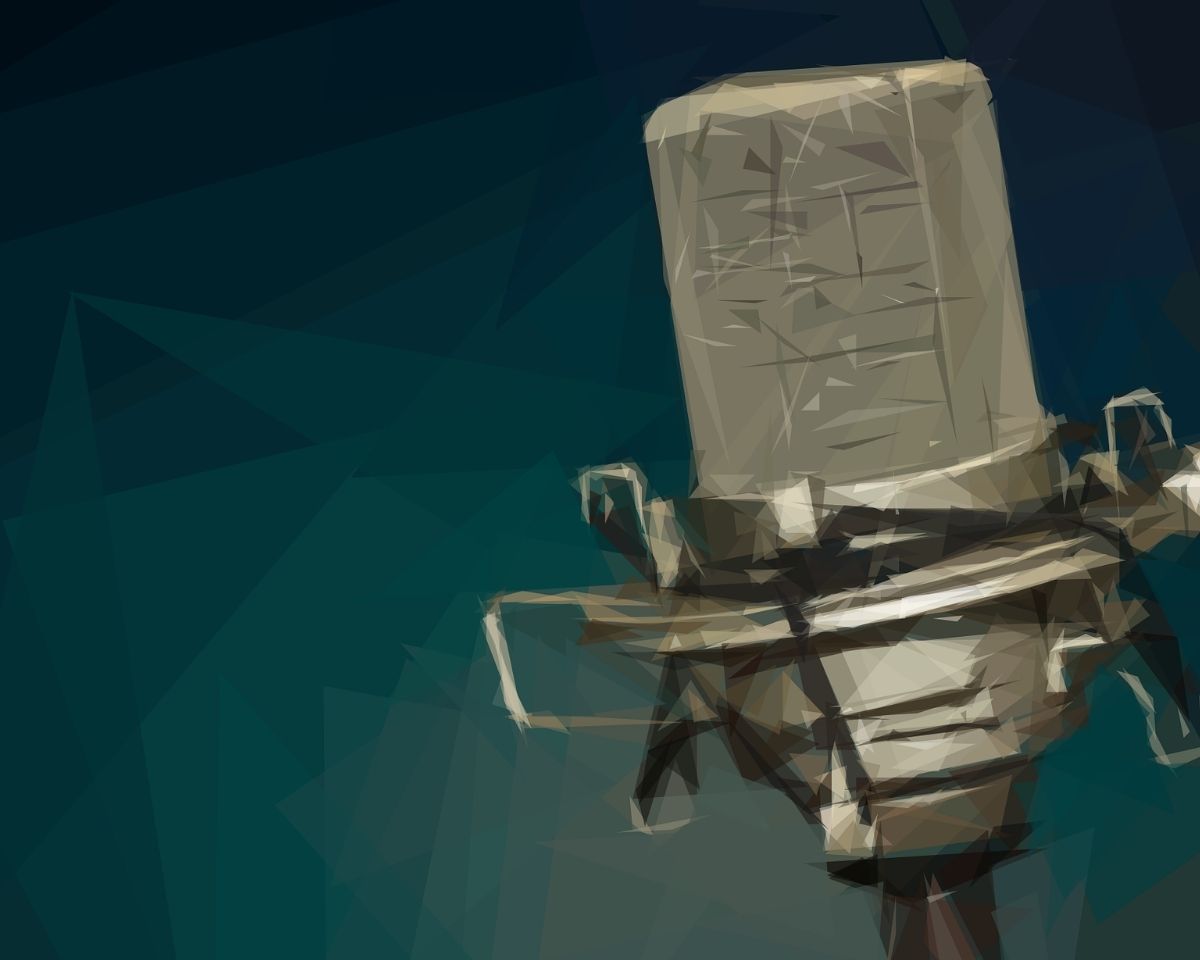
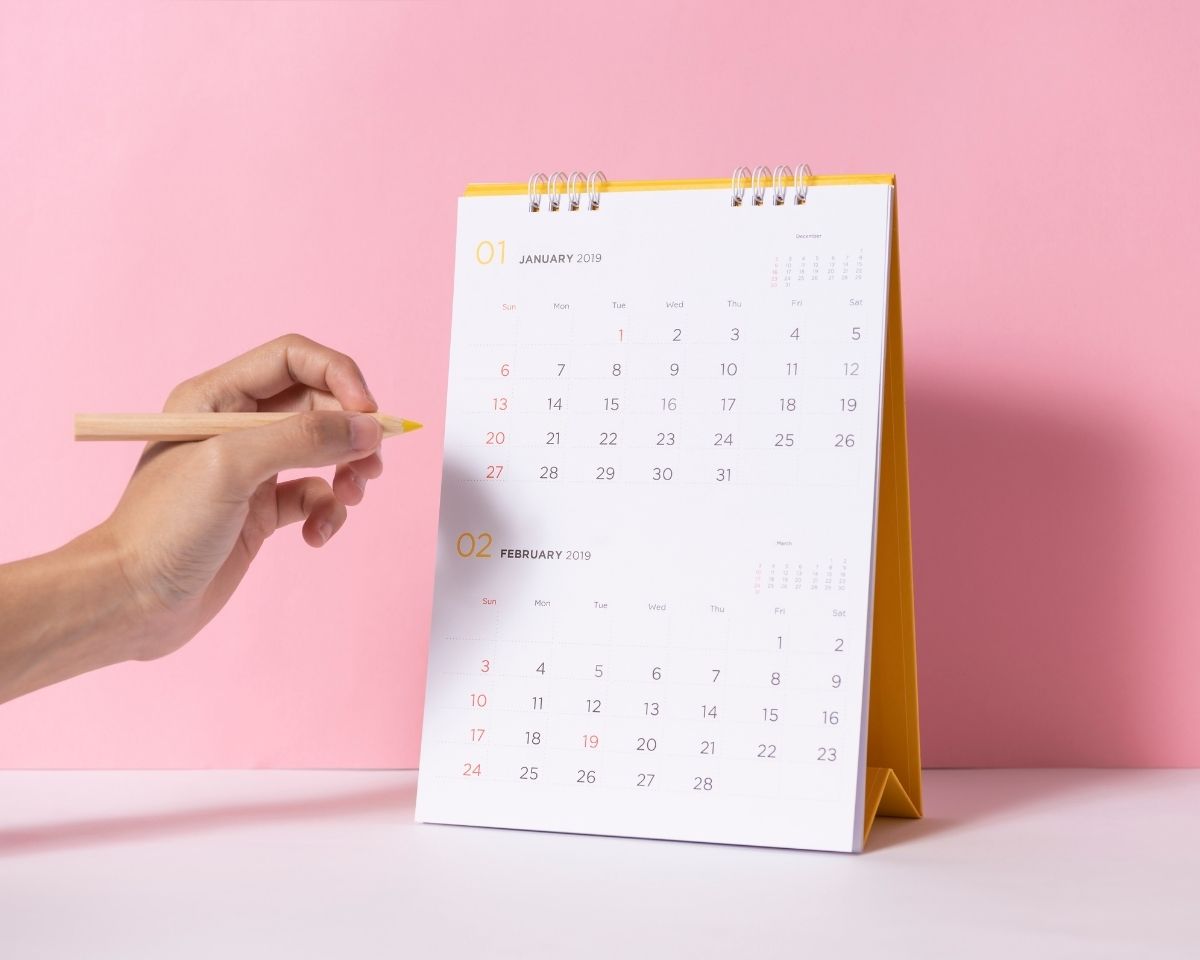





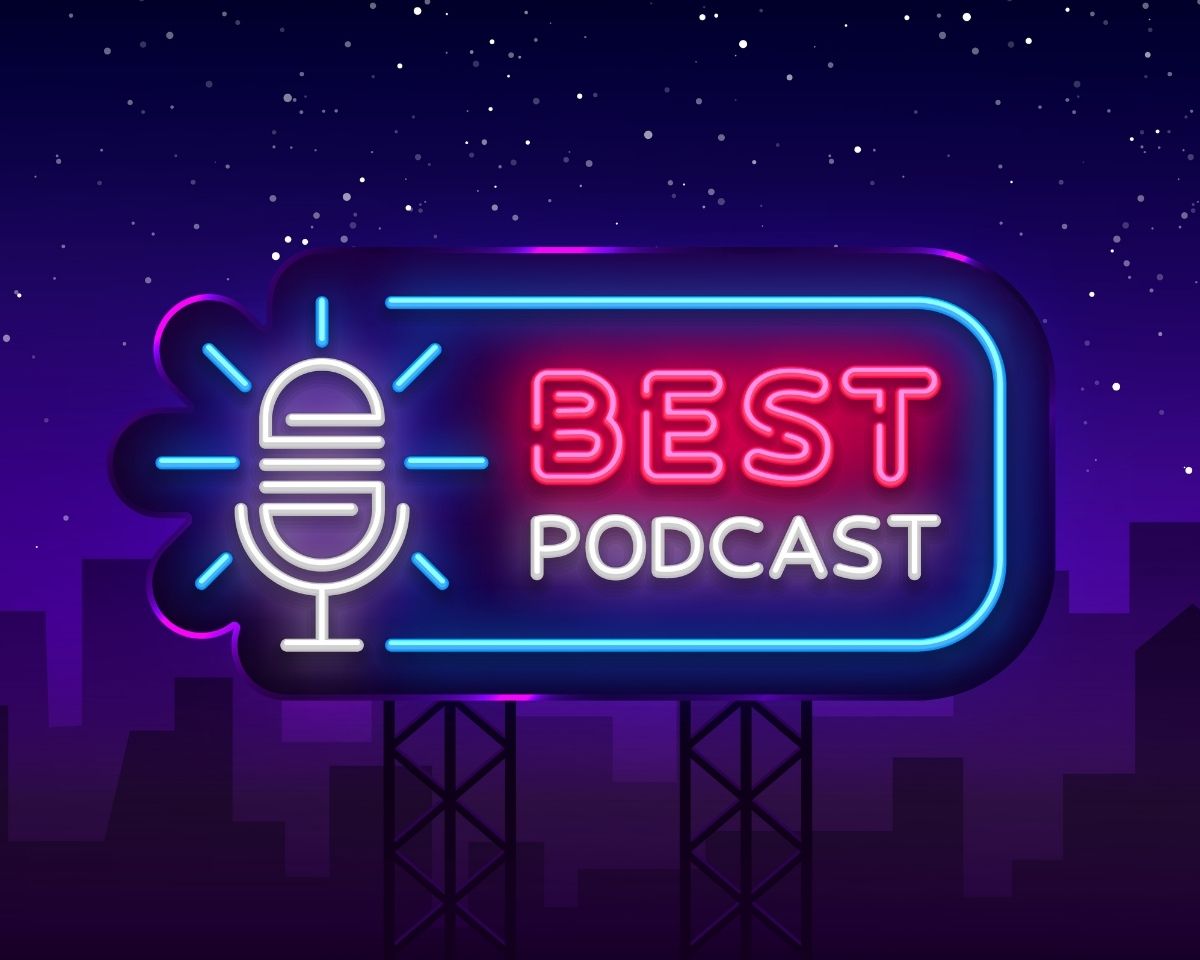




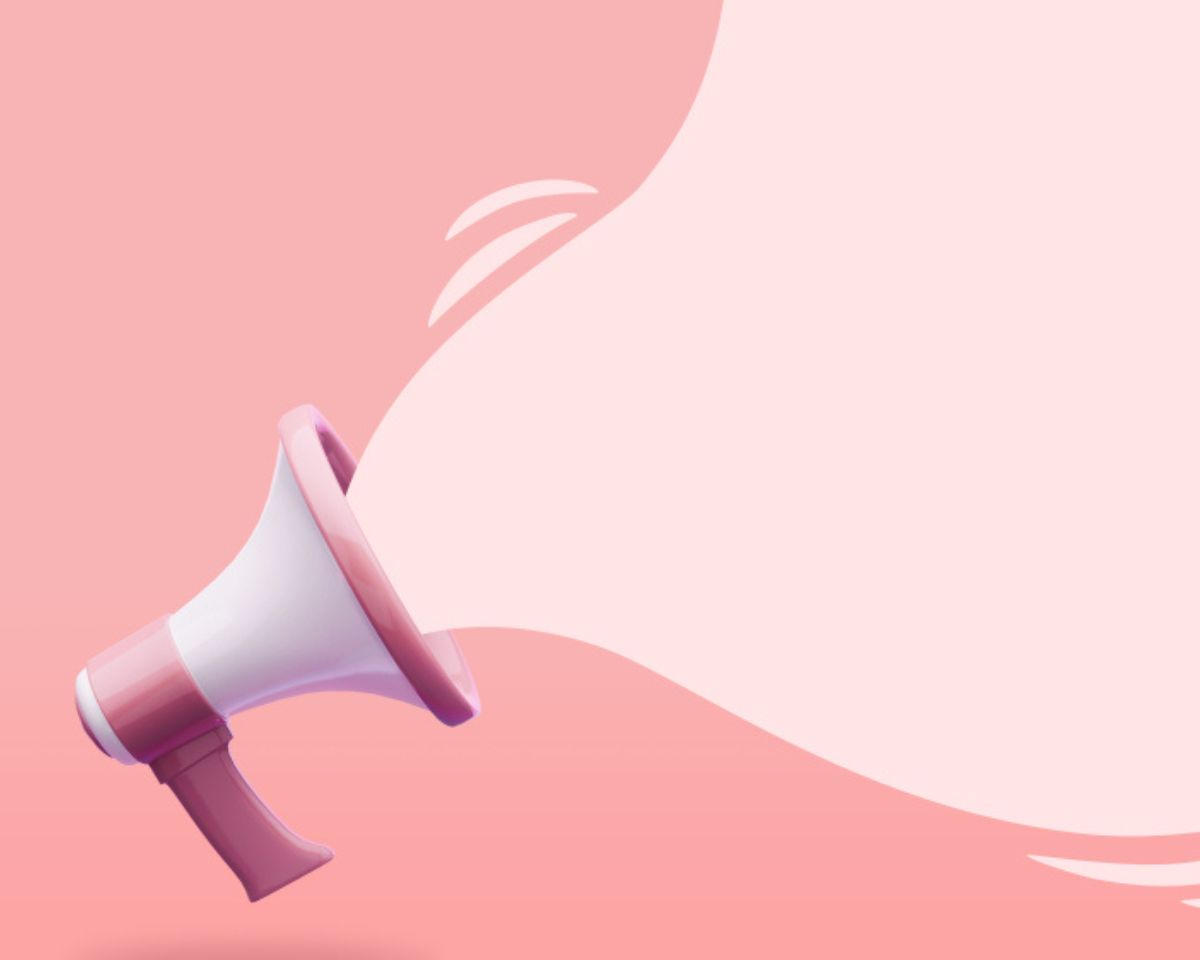




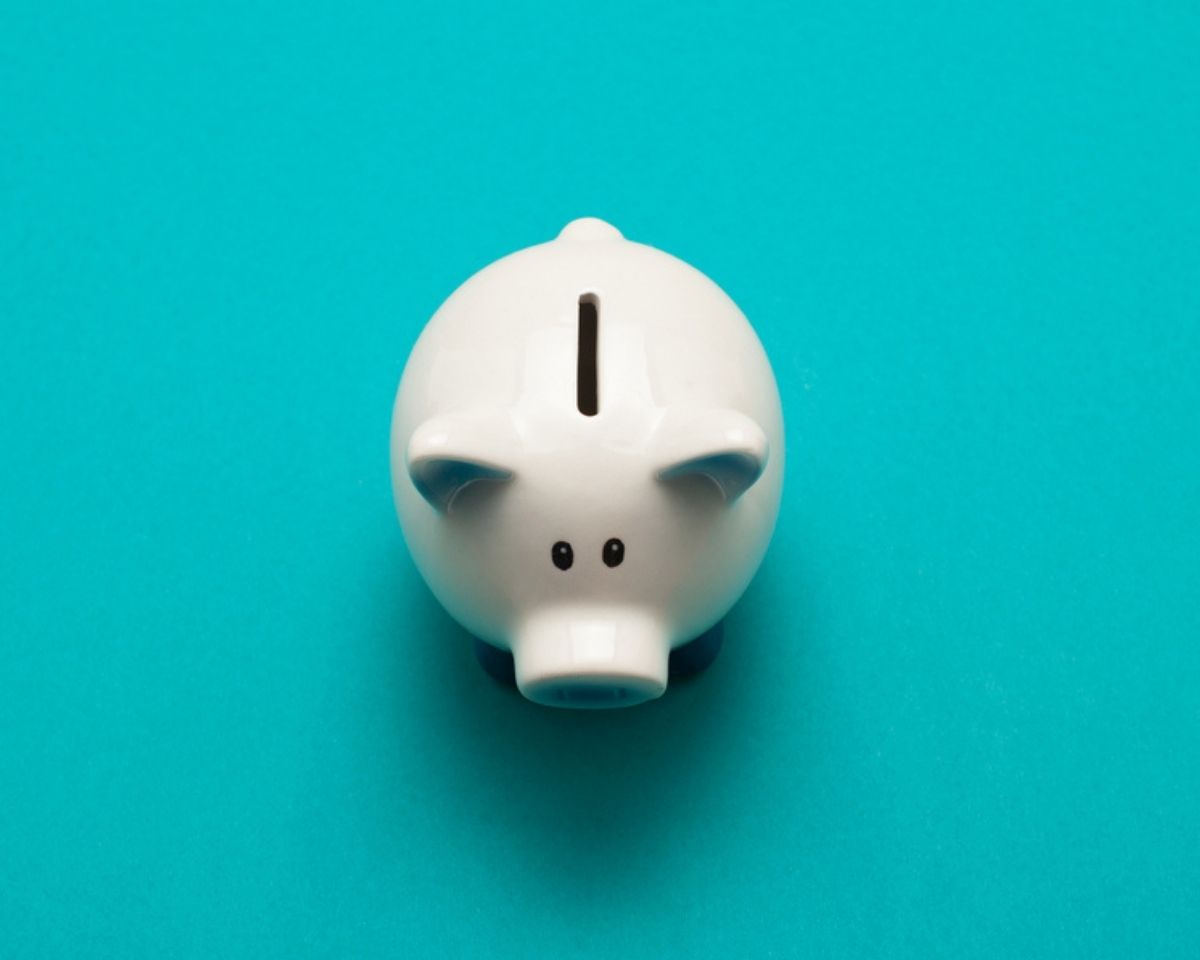
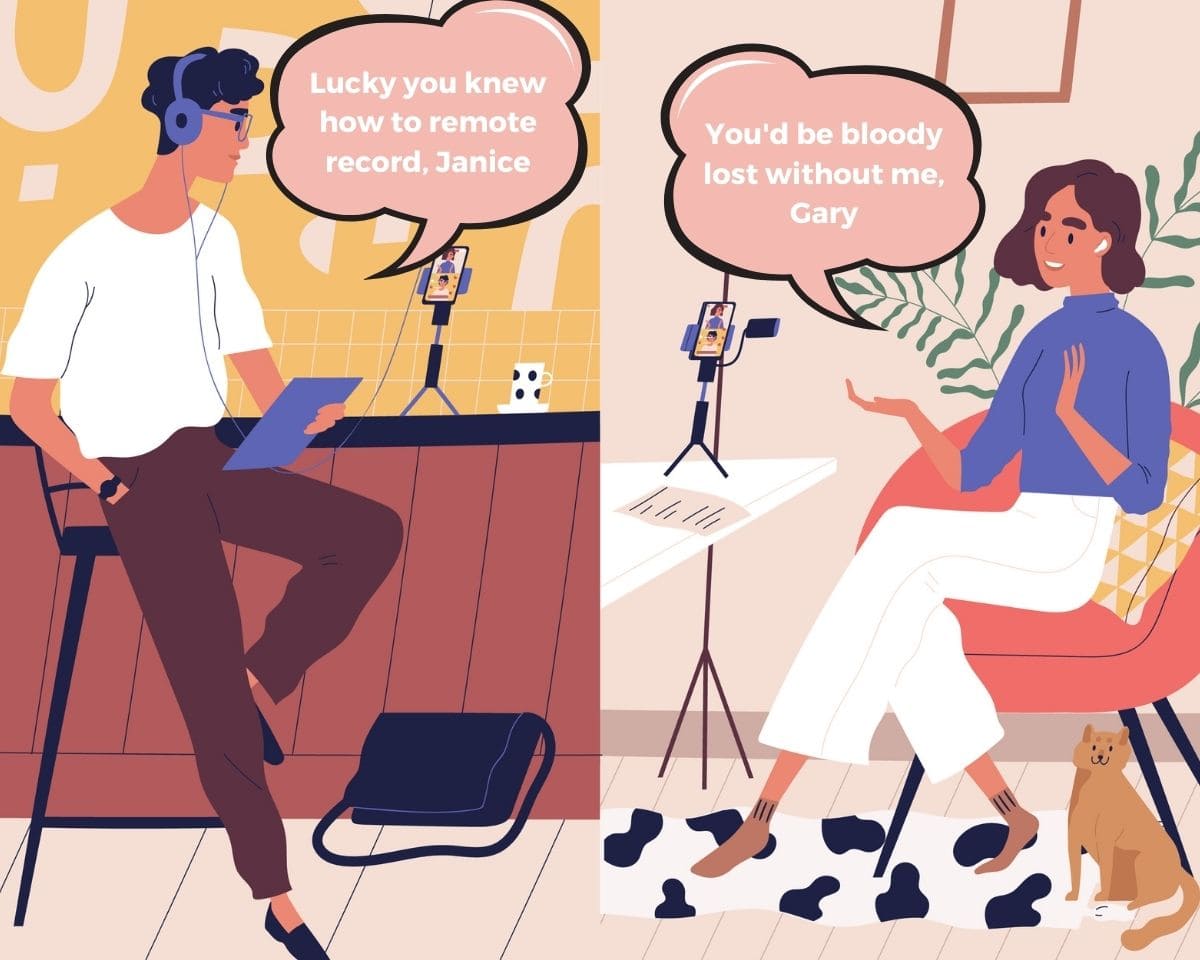



One Response
This is a great way to grow an audience.